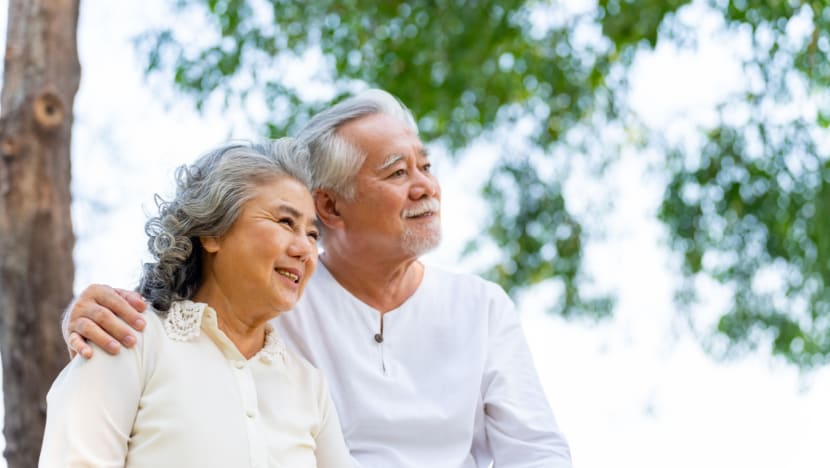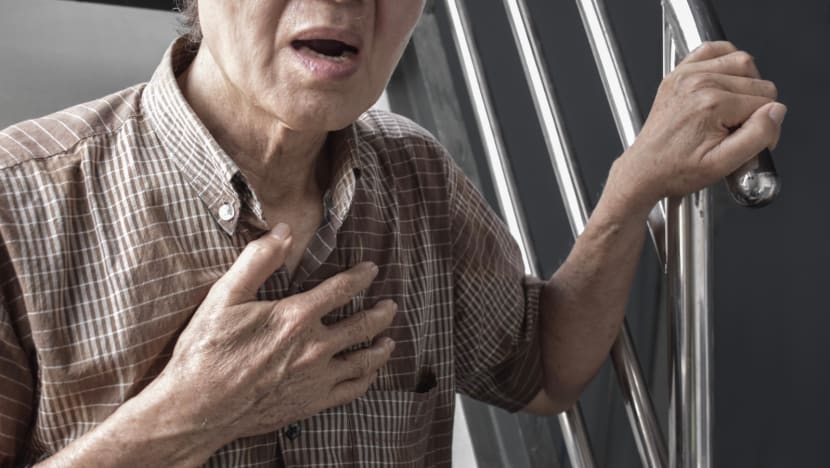Shortness of breath? It’s not ageing – it could be COPD
Chronic breathlessness, coughing or excess mucus may seem minor, but they could signal chronic obstructive pulmonary disease.

Increased awareness and early diagnosis are key to helping COPD patients manage symptoms and maintain quality of life. Photos: Sanofi

This audio is generated by an AI tool.
Many people chalk up breathlessness, a lingering cough or reduced stamina to ageing. But these symptoms could point to chronic obstructive pulmonary disease (COPD), a progressive lung condition that often goes undiagnosed until it is well advanced.
Globally, COPD is the fourth leading cause of death, according to the World Health Organization. In Singapore, it ranks 10th, affecting nine in 100 people – and as many as one in four adults over the age of 55. Yet awareness of the condition remains low.
COPD is an umbrella term for two lung conditions: Chronic bronchitis and emphysema. Chronic bronchitis causes inflammation in the airways and excess mucus production, while emphysema damages the air sacs (alveoli) in the lungs that are essential for oxygen absorption.
“Our lungs are like sponges, full of small air pockets,” explained Prof Klaus Rabe, professor of pulmonary medicine at the University of Kiel and director of LungClinic Grosshansdorf. “When those structures break down, we lose the surface area needed to absorb oxygen. Oxygen intake then becomes less efficient, especially during activity.”
Because this damage accumulates slowly, early signs are often overlooked. Feeling winded on the stairs or struggling to keep up during a walk may be dismissed as ageing, but they could be your lungs sounding the alarm. “Those signs are worth paying attention to, as ageing itself doesn’t cause shortness of breath,” he added.

WHO IS AT RISK – AND WHY IT IS NOT JUST SMOKERS
While smoking remains a major cause of COPD, it is not the only one. In Singapore, up to 45 per cent of those diagnosed are non-smokers.
Other risk factors include long-term exposure to tobacco smoke (including second-hand smoke), occupational contact with dust, fumes or chemicals, and indoor air pollution from poorly ventilated kitchens that use open flames or solid fuels. A history of asthma or lung infections can also increase vulnerability, as can socioeconomic challenges such as limited access to clean air or timely healthcare.
Fortunately, small lifestyle or environmental changes can make a big difference. Installing an exhaust fan in the kitchen or wearing a protective mask at work, for example, can help reduce exposure to harmful particles.
Prof Rabe highlighted a long-term study in China, where homes that added chimneys to previously unvented coal stoves saw the risk of COPD drop by nearly half over a decade. “It doesn’t always take high-tech solutions,” he noted. “Sometimes, a simple fix can help prevent long-term damage.”
MANAGING COPD EARLY AND EFFECTIVELY
As COPD develops gradually, many people are only diagnosed after the disease has progressed, often after repeated hospital visits. In Singapore, two-thirds of COPD patients have been hospitalised at least once, with many experiencing multiple admissions.
Early red flags typically show up as a decline in physical ability. “People begin to notice that they can’t do what they used to, like walking to the market without pausing or climbing stairs without needing to stop. That’s when they should consult their doctor,” said Prof Rabe.
Simple lung function tests, such as spirometry or the six-minute walk test, can help detect issues early, allowing doctors to recommend treatment plans before they disrupt daily life.

Treatment usually starts with inhalers to open the airways and reduce inflammation, but medication alone is not enough. Pulmonary rehabilitation – a combination of exercise and education – plays a vital role in helping patients restore stamina and confidence. “It’s not just about managing symptoms,” said Prof Rabe. “It’s about helping patients enhance overall quality of life.”
BREATHE EASIER WITH THE RIGHT SUPPORT
Biologics are a new class of COPD treatments that target specific molecules involved in inflammation, offering hope to patients. Originally developed for asthma, biologics are injectable drugs that target specific types of inflammation linked to COPD.
One such therapy by Sanofi is now available in Singapore for eligible patients. “It’s designed for those who continue to have flare-ups despite optimal therapy,” explained Prof Rabe. “When used appropriately, it can help manage symptoms more effectively and support respiratory function.”
Biologics may also offer added convenience, especially for older patients. “They don’t require precise inhaler technique and can be self-administered at home,” he added.
Clinical trials have shown that patients on biologic treatment experienced reduced flare-ups and improved lung function. “These findings suggest that this treatment may help reduce hospital visits in the long run and allow patients to maintain their quality of life,” said Prof Rabe.
Ultimately, improving outcomes starts with greater awareness among both the general public and healthcare professionals.
Prof Rabe urges anyone experiencing unexplained shortness of breath to speak to their doctor. “Lung function tests should be as routine as checking blood pressure or heart rhythm,” he said. “Too often, people quietly change their lifestyle routines as symptoms creep in. They stop doing the things they enjoy, without realising it could be due to an underlying condition.”
Think you or someone you know might be at risk? Visit the Uncover Life website to learn more about COPD symptoms, screening and available treatments.
MAT-SG-2500178-v1.0-Jun 2025















